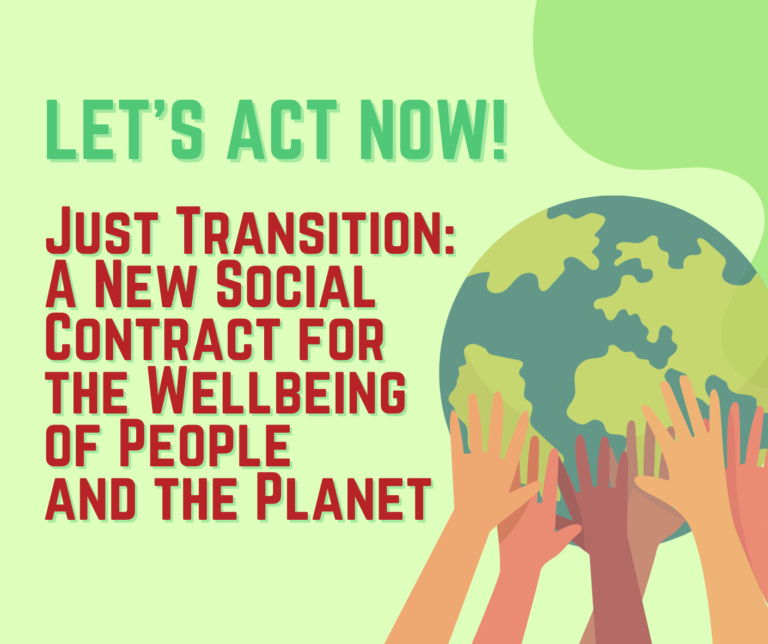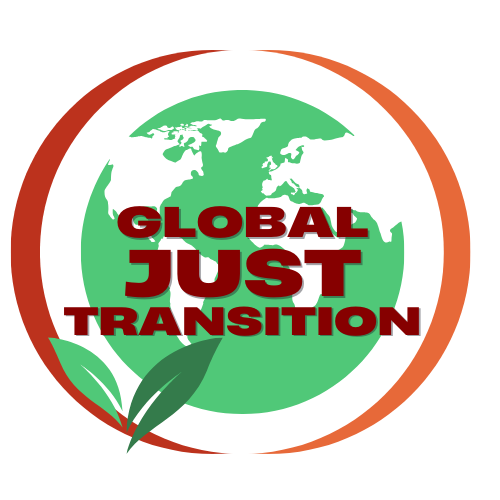“The Future of the EU should be about collaboration, not competition” – SOLIDAR’s reaction on the new European Commission line-up
September 26, 2024
Last Tuesday, Ursula von der Leyen introduced her proposed team of EU Commissioners for 2024-2029, featuring 27 old and new faces, including six Executive Vice-Presidents who will shape the direction of the European Commission for the next five years. In her announcement, von der Leyen emphasized portfolios built around “prosperity, security, and democracy” with a focus on “competitiveness in the twin transition”.
However, at SOLIDAR, we see significant gaps in this vision, especially when it comes to the core values of social justice and sustainability.
While the political guidelines talk about sustainable prosperity and dedicates a section to the need to support people and strengthen our social model, the emphasis on defense and strategic autonomy, and the repeated use of buzzwords like “skills,” “preparedness,” and “competitiveness”, reveals a narrow, business-oriented, security driven, and Euro-centric agenda. For a network of progressive civil society organisations like SOLIDAR, which advocates for a Europe built on social justice, solidarity, and a just transition, this is alarming.
The Good News: A Commissioner for Just Transition
We welcome the appointment of Teresa Ribera as Executive Vice-President (EVP) for a Clean, Just, and Competitive Transition. Her track record as a champion for a just transition signals hope for a more robust implementation of this policy. Ribera’s role as EVP and the broad scope of her portfolio could prove crucial in ensuring a more holistic approach. One that guarantees that Europe’s green transition prioritises the wellbeing of people and the safeguard of planetary boundaries. Building on our cooperation initiated last year, SOLIDAR looks forward to working with her to make sure that all the competitiveness initiatives align with environmental and social objectives.
Sounding the Alarm
While we are cautiously optimistic about the possibilities to advance on Just Transition, there are several key omissions and worrisome assignments in the new Commission structure.
We echo the words of ETUC Secretary General Esther Lynch about the lack of a dedicated Commissioner for Jobs and Social Affairs. The decision to shift responsibility for the European Pillar of Social Rights (EPSR) to the new Executive Vice-President for People, Skills, and Preparedness, Roxana Mînzatu, waters down its significance. The EPSR is a vital framework for tackling inequality and ensuring social protection across Europe. Yet, with a broader scope and several important files put together, it risks being sidelined, failing to address deeper issues like poverty, job insecurity, and low wages.
Moreover, there is no specific mention of education. Education plays a fundamental role in fostering inclusive societies and reducing inequalities. The current portfolio focuses solely on skills and preparedness, a terminology that aligns more with market demands than with holistic lifelong learning. This represents a worrying trend seen in the previous mandate.
With the appointment of Raffaele Fitto, former MEP of the ECR Group, as Executive Vice-President for Cohesion and Reforms, Von der Leyen has replaced the “cordon sanitaire” with a red carpet. SOLIDAR strongly rejects the normalisation of the far-right by awarding key leadership positions, hoping for a clear rejection of this proposal by the European Parliament.
The portfolio for International Partnerships, led by Jozef Síkela, a former investment banker, also leaves much to be desired. We reject the narrative in the statement by Síkela of a portfolio focusing “on strengthening the EU’s economic security”. In the face of mounting global challenges, we need a strategy that prioritises true partnerships with the Global South—built on mutual development, inclusivity, and sustainability. Instead, economic security and trade competitiveness takes center stage, which risks further undermining the SDGs and the 2030 Agenda and making efforts towards a global just transition impossible.
The current proposal of Commissioners, moreover, does not reflect the majorities present in the European Parliament, but more the current political orientations of the Council.
Looking Ahead: Our Call to Action
By making security, competitiveness and growth the hallmarks of her second mandate, President von der Leyen is presenting a conservative and neo-liberal vision for Europe rather than one that could bring about the systemic changes we so desperately need. However, things can still change in the composition, description and appointment of the new Commissioners. SOLIDAR will be working with our allies in the European Parliament to push for more progressive changes and clarifications in the final line-up.
And it is not all doom and gloom as we look ahead to this new mandate, there are openings on a number of issues crucial to social justice and just transition. But we need to work even more closely with our progressive friends and allies to make progress wherever possible. We really need each other in the period ahead.
SOLIDAR will continue to work for a global just transition, starting with a strong Green and Social Deal, to ensure that not only Europe’s future is just and sustainable, but also that of our partner countries.
Stay tuned for our detailed analysis of the new Commission’s political guidelines!






